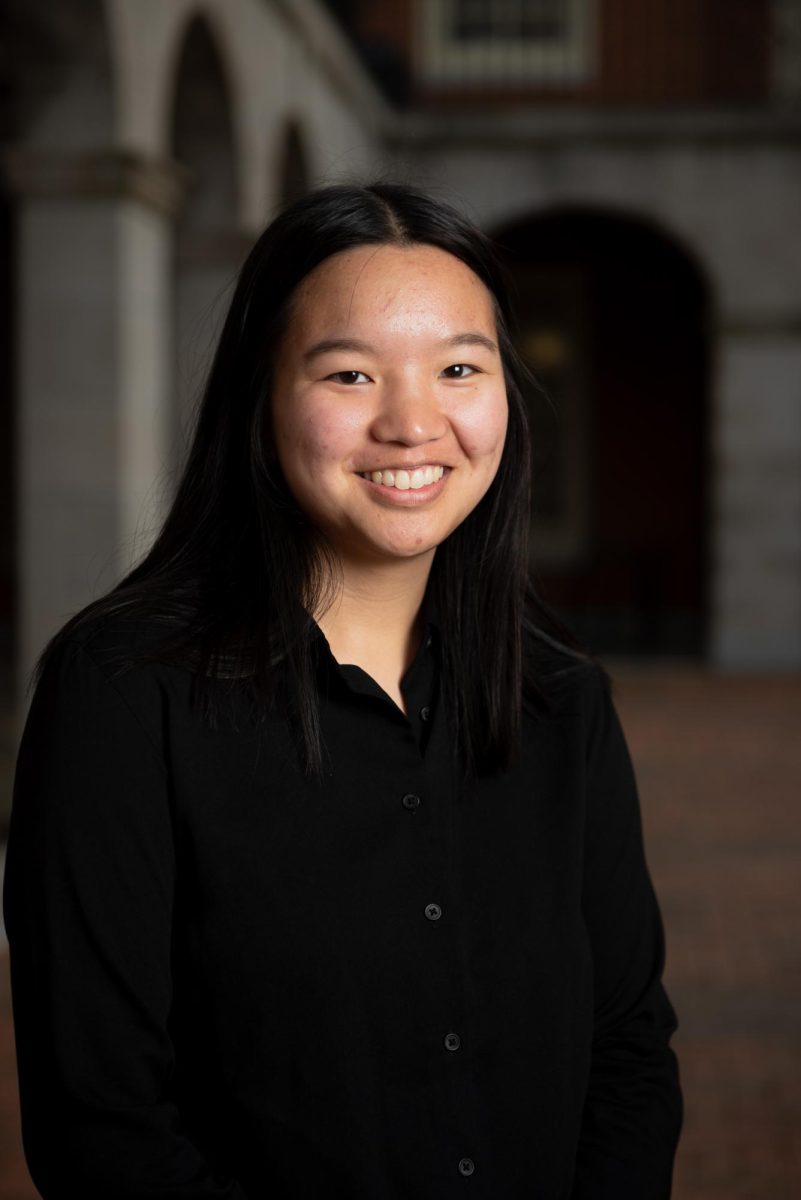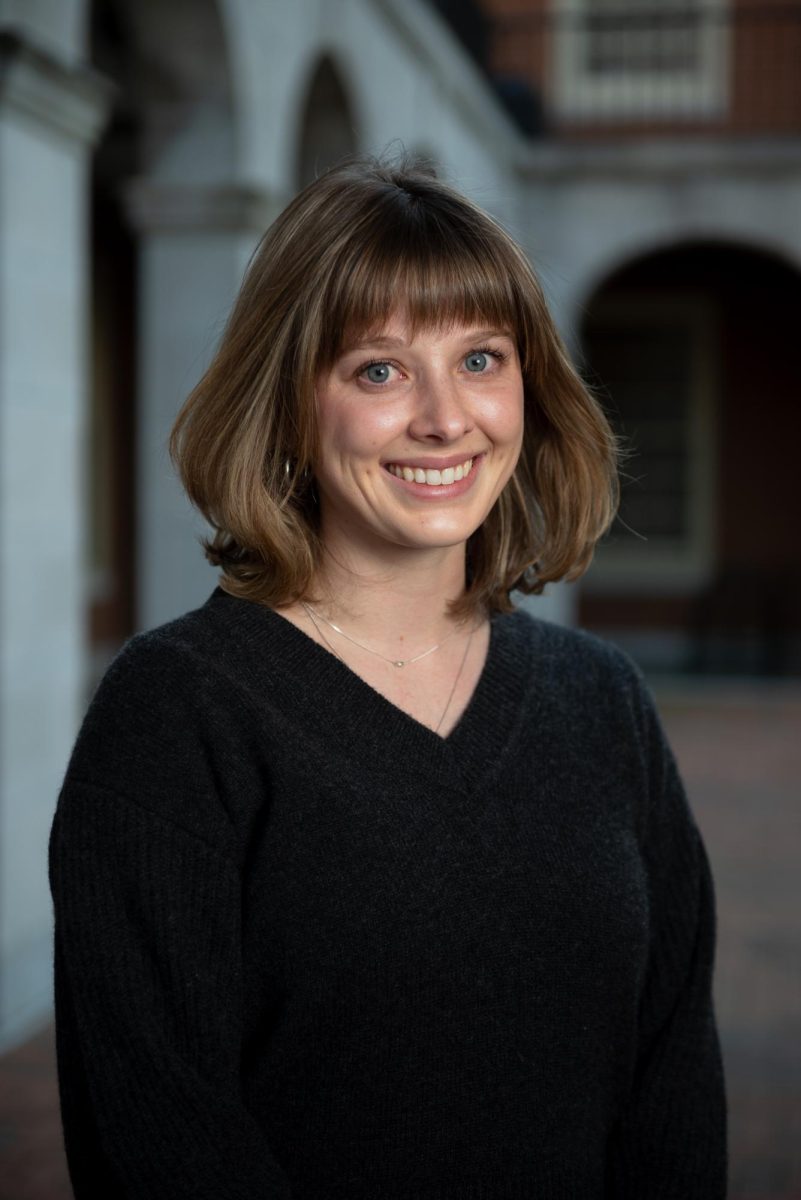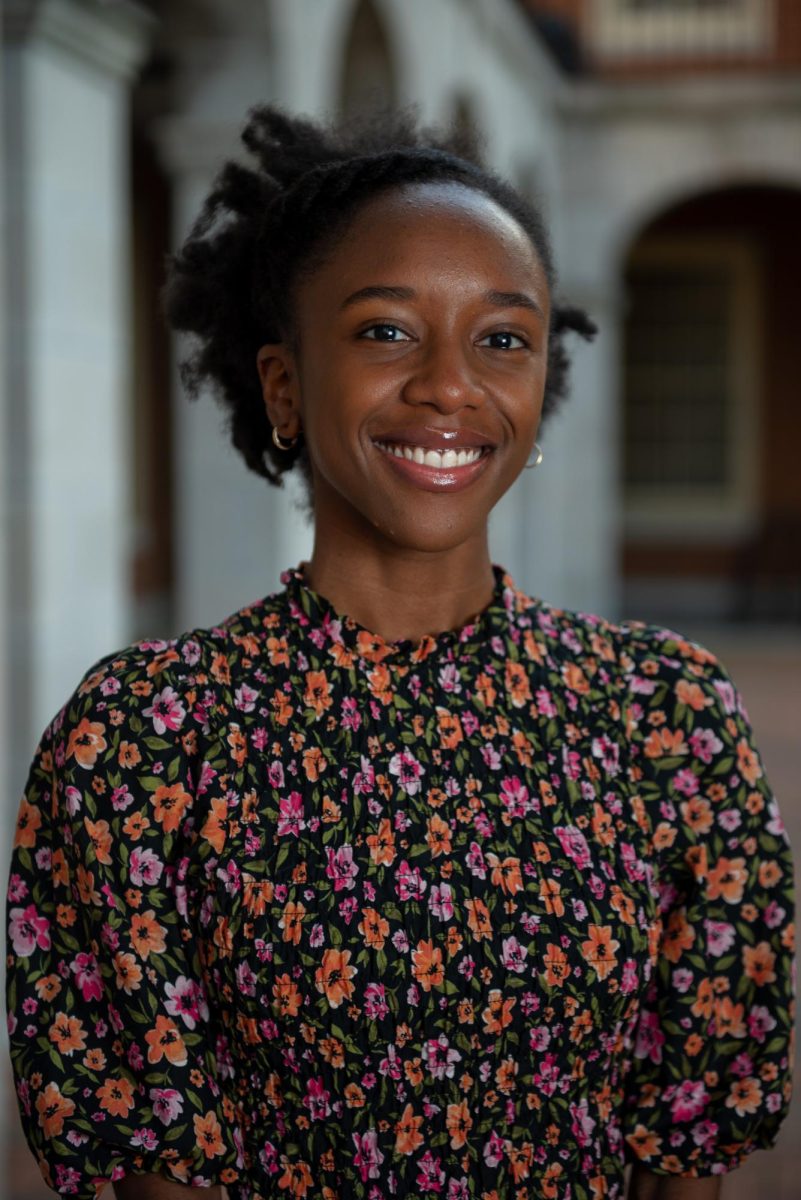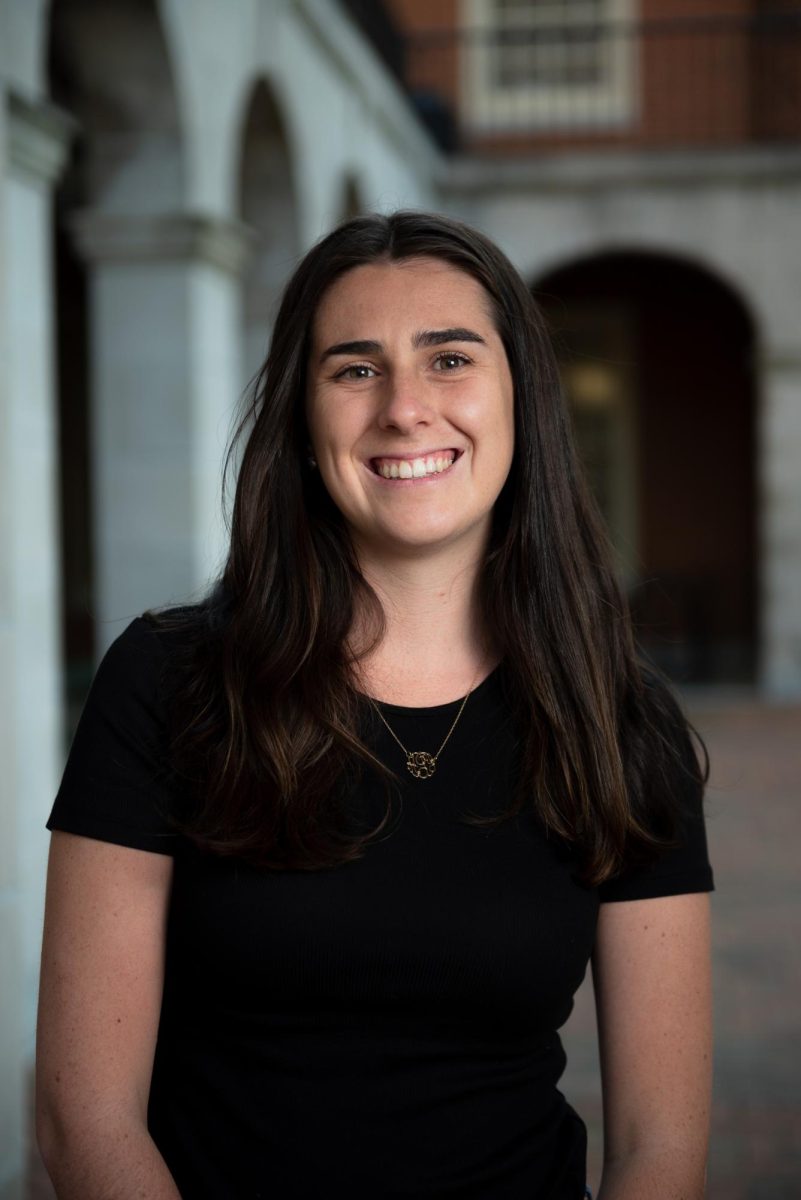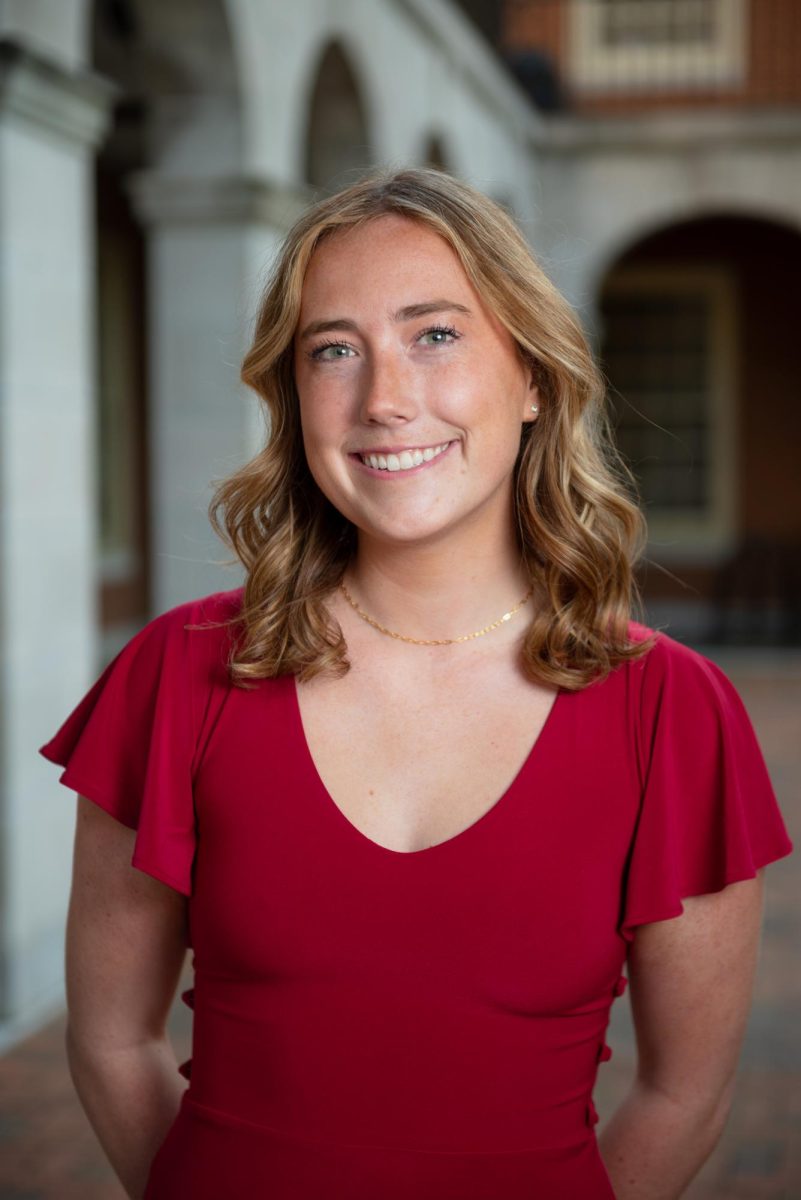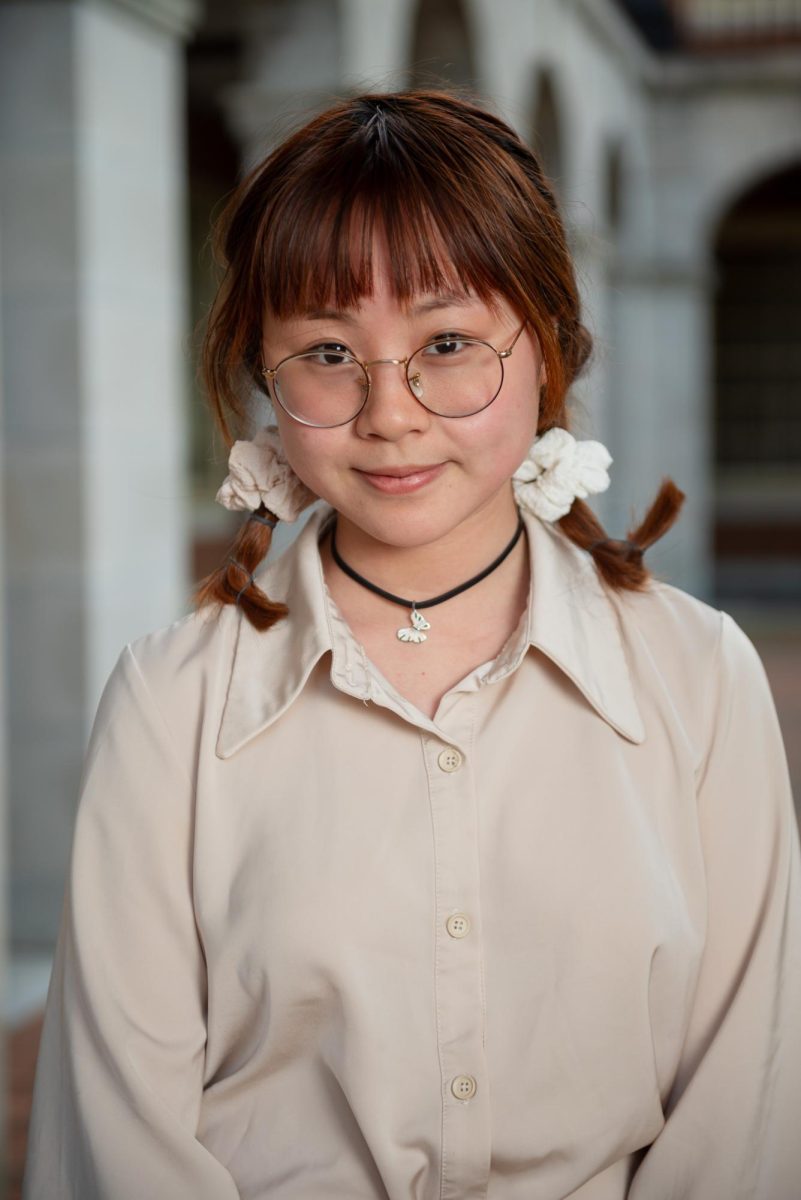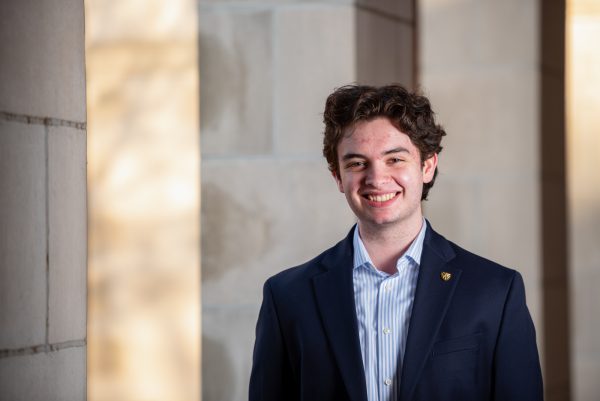The clock strikes noon as you find yourself roaming Hearn Plaza on a warm spring day. Students study on blankets, scattered with books and charging cables as others rush to their next class/meeting/lunch date. Suddenly, the mighty carillon bells of Wait Chapel erupt to mark the time. There’s a good chance that it’s graduating senior Aimee Lents’ doing.
Lents, a musicology major, has spent her past four years as a Demon Deacon immersing herself in all Wake Forest and its arts programs had to offer — Chapel bells included.
“It’s been a privilege and so much fun to play for events like Commencement and Campus Days, though whatever I choose to play is definitely revealing of my age.” Lents said. “I was also very lucky to be able to visit the birthplace of the carillon instrument, so to speak, with a Richter scholarship.”
Now, Lents is shipping up to Boston, likely pursuing a master’s degree in musicology from Boston University.
But if you were to ask Lents what she thought she’d be studying four years ago, the answer would be pretty different.
She’s also a double major in sociology, though initially planned for that to be her only major. But later found that she felt happiest while studying the arts.
Lents said one of the turning points in her decision to major in musicology was taking Dr. David Geary’s Pop and Jazz Theory class, which made her realize that pop music, in general, is a legitimate subject of study.
“I enjoyed how casual the study of music can be. It’s not just Beethoven and Bach. It can be very niche and whatever you want it to be,” Lents said. “Pop music opens up so many avenues for scholarship, including music theory, sound design and emotional effect, for instance.”
For Lents’ senior project, she had always been interested in film scores since playing music. In April, she gave a presentation entitled “Imperial Bodies and Sound: White-Washing in the Music of Women and Cyborgs in Cyberpunk Dystopian Film.”
“I’m looking at three specific case studies: ‘Cloud Atlas,’ ‘Alits: Battle Angel’ and ‘Ghost in the Shell,’ all movies with prominent female cyborg characters,” she said. “Looking at the music that accompanies them, it is enforcing ideas of the characters being humanized, or is it othering or exoticizing their backgrounds and characters.”
The topic first came to Lents way back in her first year seminar class, entitled Law and Culture. In it, the class watched the film “Ex Machina,” and while most of the class responded positively to the film, Lents took issue with it.
“This is not good, especially because of its treatment of women characters,” Lends said. “Then I noticed common tropes through watching other movies.”
Then, after taking Dr. Megan Francisco’s Music and Film class, she was able to build a foundation for later helping her with research in both a URECA Fellowship and then her senior project.
In some ways, her honors presentation is the culmination of her four years at Wake Forest.
“I guess you could say it’s finally all piecing together,” Lents said.



